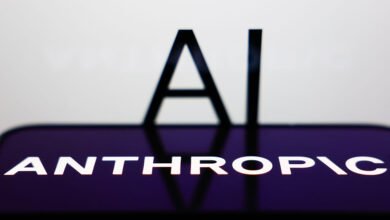Record Labels Sue Suno AI for Allegedly Stealing Songs from YouTube

▼ Summary
– Major record labels have escalated their lawsuit against AI startup Suno, alleging it pirated songs from YouTube to train its AI music models.
– The RIAA accuses Suno of unlawfully “stream ripping” copyrighted tracks and circumventing YouTube’s “rolling cipher” encryption technology.
– This circumvention of YouTube’s technological measures is alleged to violate the anti-circumvention provisions of the Digital Millennium Copyright Act (DMCA).
– The lawsuit targets Suno’s fair use defense by pointing to research suggesting the company illegally sourced its training data.
– The RIAA is seeking statutory damages of $2,500 per circumvention act and up to $150,000 for each copyrighted work infringed.
A significant legal battle has intensified as major record labels escalate their lawsuit against AI startup Suno, accusing the company of systematically pirating music from YouTube to train its generative AI models. An amended complaint, filed by the Recording Industry Association of America (RIAA) on September 19th, presents new allegations that Suno engaged in unlawful “stream ripping.” This practice involves capturing audio from streaming services and converting it into downloadable files, directly bypassing protections meant to stop unauthorized copying.
The updated legal documents claim Suno “employed code to access, extract, copy, and download” copyrighted music owned by Universal Music Group, Sony Music Entertainment, and Warner Music Group. A central accusation is that the company violated YouTube’s terms of service by circumventing the platform’s “rolling cipher” encryption technology. According to the RIAA, this deliberate bypass of YouTube’s security measures enabled “Suno’s ongoing and mass-scale infringement” and represents a clear violation of the anti-circumvention provisions found in the Digital Millennium Copyright Act (DMCA).
Section 1201 of the DMCA explicitly prohibits individuals from circumventing technological measures that control access to copyrighted works. While this law has been applied in a wide range of contexts over the years, from phone unlocking to equipment repair, this lawsuit invokes it for a purpose much closer to its original intent: stopping digital piracy by breaking digital rights management (DRM). The statute does include a process for granting specific exceptions, but no such exception currently exists for the purpose of training artificial intelligence systems.
Suno has maintained a degree of secrecy regarding its training data, offering only vague explanations about its origins. The company has argued that using copyrighted materials to train its AI models is legally permissible under the fair use doctrine, a position supported by at least one court ruling, though it lacks a broad legal consensus. The amended complaint directly challenges this defense by citing research from the ICMP publishers group, which suggests Suno illegally sourced its training data by breaking YouTube’s encryption. This line of argument draws a parallel to the ongoing case involving Anthropic, which recently faced a $1.5 billion settlement over book piracy allegations, though that litigation is currently paused.
The lawsuit asserts that Suno ingested “decades worth of the world’s most popular sound recordings” into its AI systems without obtaining permission from the rights holders. As a result, the RIAA is pursuing statutory damages of $2,500 for each act of circumvention, in addition to seeking up to $150,000 for each individual work that was infringed.
(Source: The Verge)


